Is your scalp a tad bit too itchy these days? This might be because you have a dry or flaky scalp.
A dry, flaky scalp can be an uncomfortable and embarrassing issue. It can also lead to other hair problems such as dandruff and hair loss. But don’t worry, with a few simple changes to your daily regime, you can say goodbye to those annoying flakes.
UNDERSTANDING YOUR SCALP
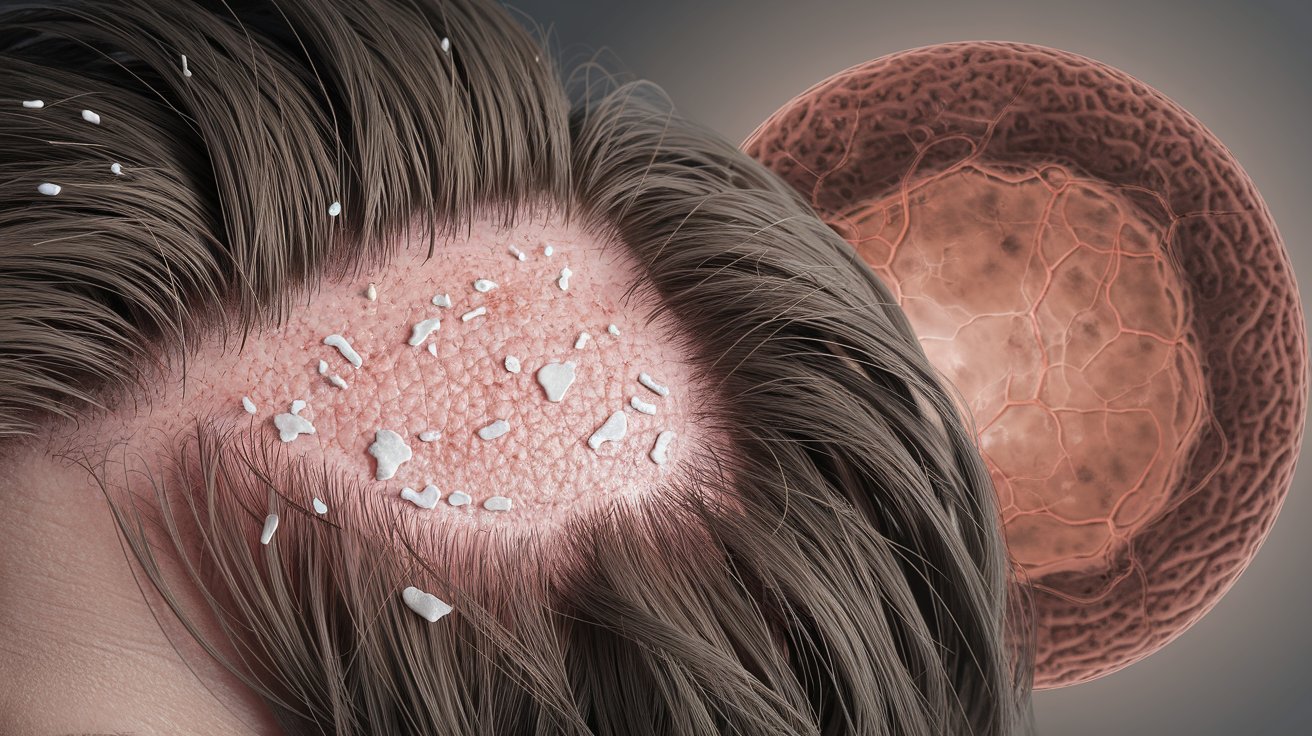
Your scalp is essentially skin, and like the rest of your body, it requires proper care to stay healthy. When your scalp is unable to produce enough natural oils, it can become dry, further leading to itching, flaking, and irritation, just like other forms of dry skin. The sebaceous glands on the scalp produce sebum, which is crucial for maintaining the protective barrier.
CAUSES OF DRY SCALP
There are several factors that can intervene in the usual sebum production of your scalp, leading to a flaky dry scalp. Some common causes are:
Environmental factors:
Factors such as cold weather, dry air, especially during winter months, can lead to dryness and flaking. Similarly, excessive sun exposure can also cause the same.
Over-washing:
Washing your hair too often can strip your scalp of natural oils, leading to dryness, especially if you use hair products with harsh ingredients such as sulphates, which further worsen the issue.
Heat and chemical treatments:
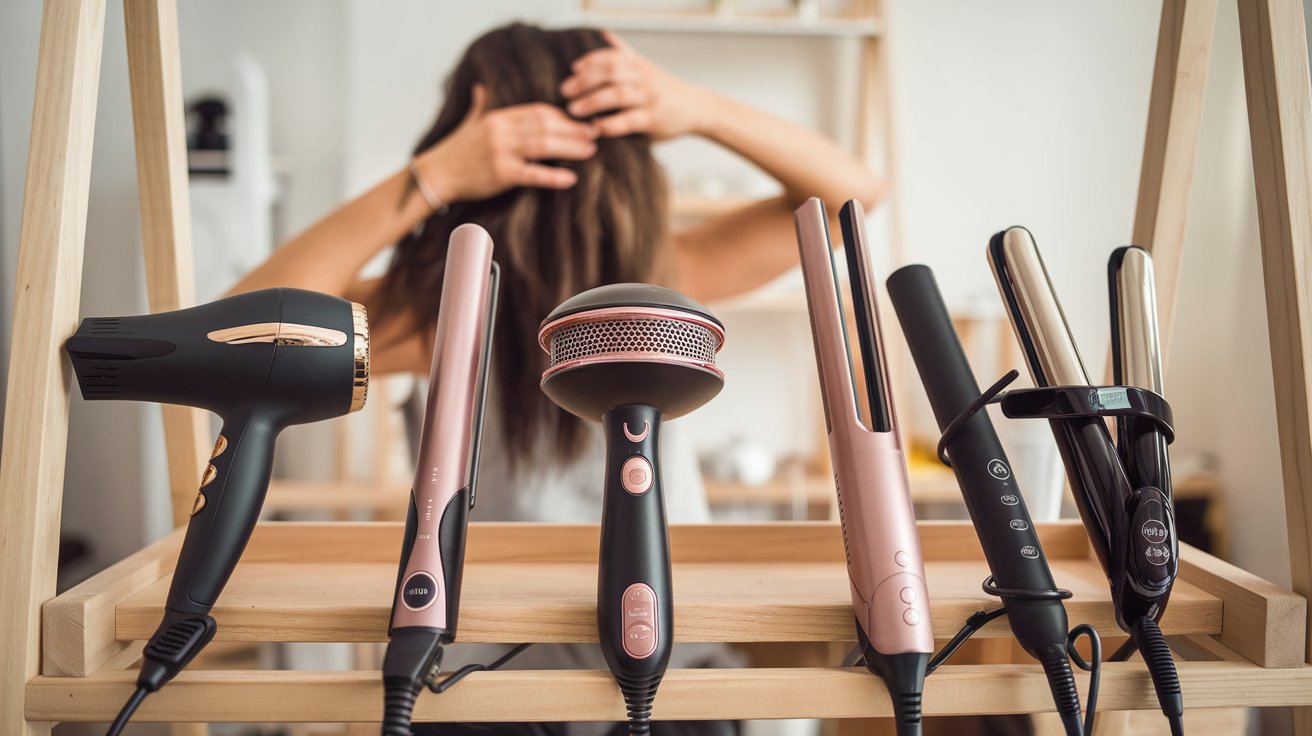
Artificial heat from excessive use of blow-dryers and straighteners can damage your hair and scalp. Hair coloring, perming, and other chemical treatments can also dry out your scalp.
Also read, 5 Common Hair Mistakes You Should Avoid
Diet and hormonal changes:
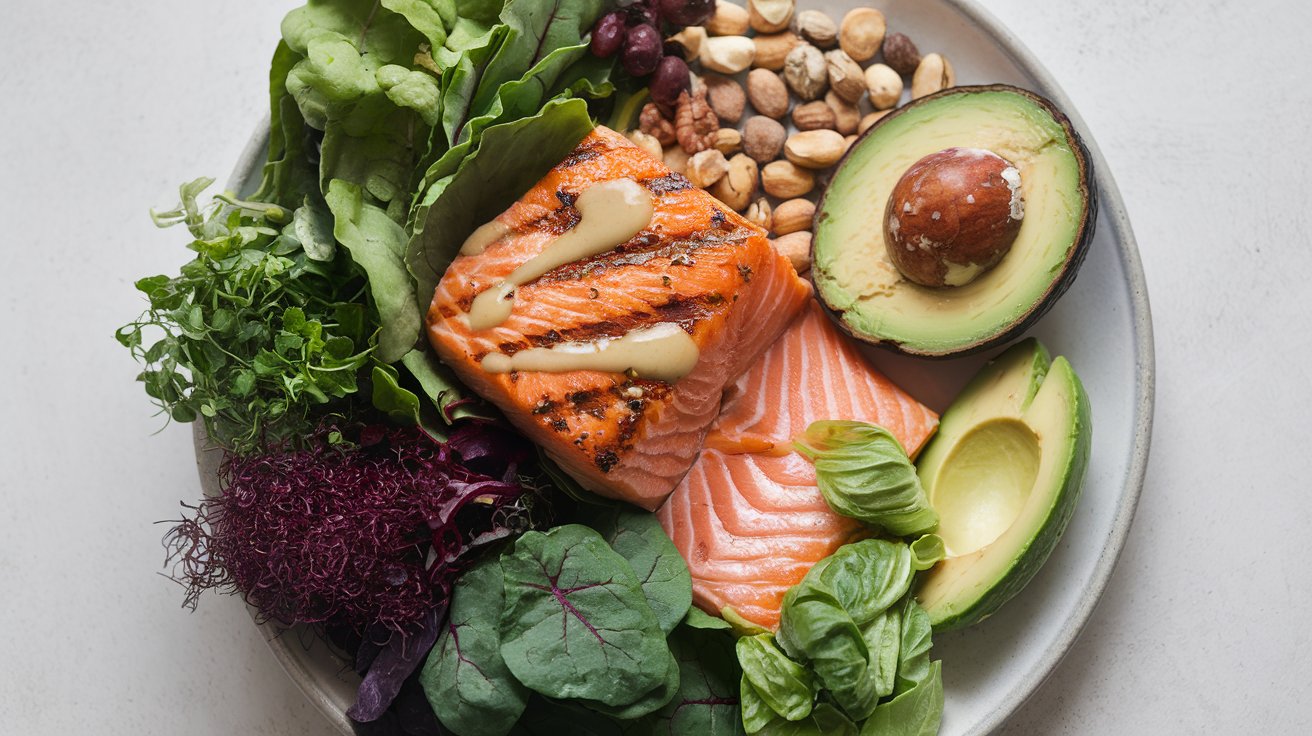
A diet lacking essential nutrients like omega-3 fatty acids, zinc, and vitamins can affect skin health, including the scalp. Hormonal fluctuations, including those caused by stress, can also affect the skin’s ability to retain moisture.
Underlying health conditions:
Certain skin conditions like eczema or psoriasis can cause a dry, flaky scalp.
DRY SCALP OR DANDRUFF?
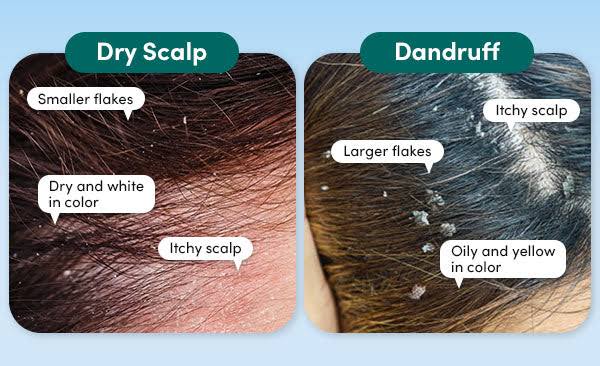
While both dry scalp and dandruff cause flaking and itching, they are distinctive in nature and should not be mistaken as the same.
Appearance:
Dry scalp flakes are typically smaller and whiter, while dandruff flakes are larger and often have a yellowish or greyish tint.
Causes:
Dry scalp is primarily caused due to lack of moisture whereas dandruff is caused by excess oil and a fungal overgrowth.
Symptoms:
Both conditions can cause itching, but dandruff is often accompanied by redness and oily skin.
PREVENTION TIPS
To prevent a dry scalp, it is essential to maintain moisture levels. Here are some practical tips:
Scalp massage:
Massaging your scalp can help stimulate blood flow which can aid in delivering nutrients and oxygen to the scalp. Use your fingertips to massage your scalp gently for a few minutes each day.
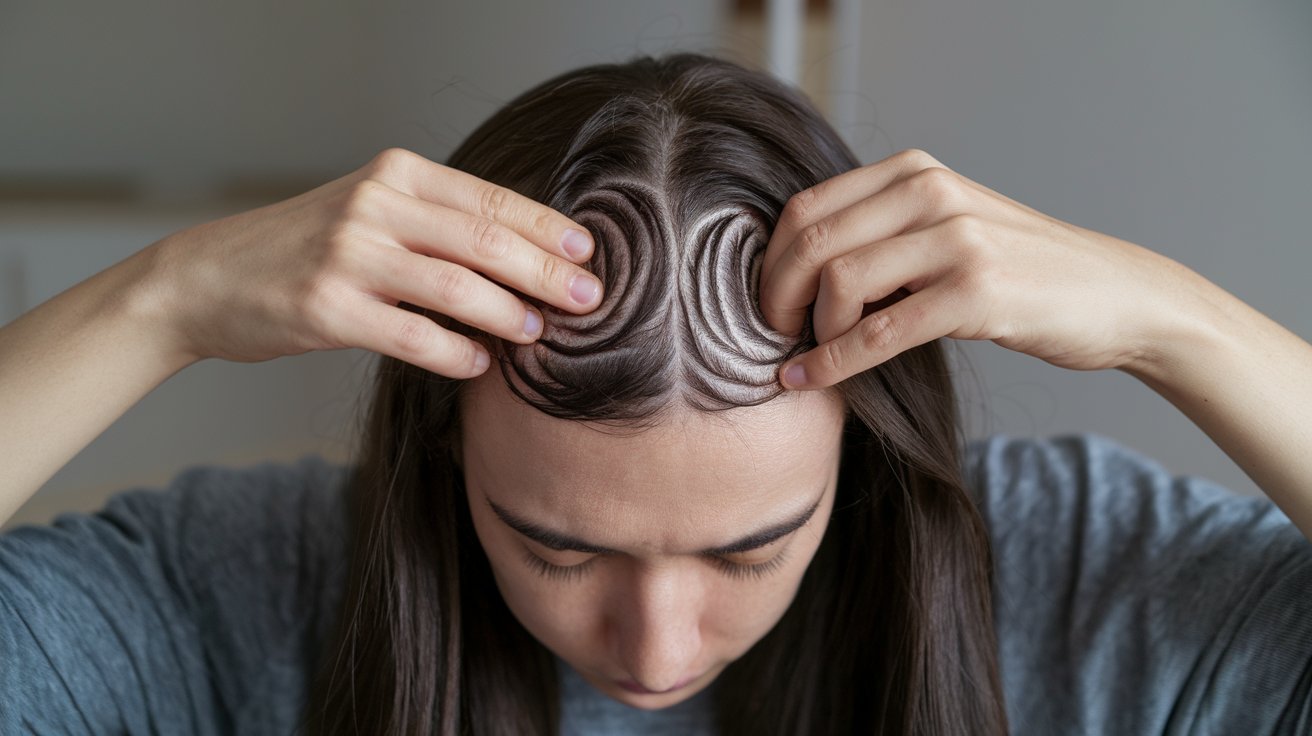
Use moisturizing oils:
Apply natural oils like argan oil, coconut oil, or jojoba oil at regular intervals. Rich in antioxidants, essential fatty acids, and moisturizing properties, these oils help to hydrate and protect the scalp.
Gentle shampooing:
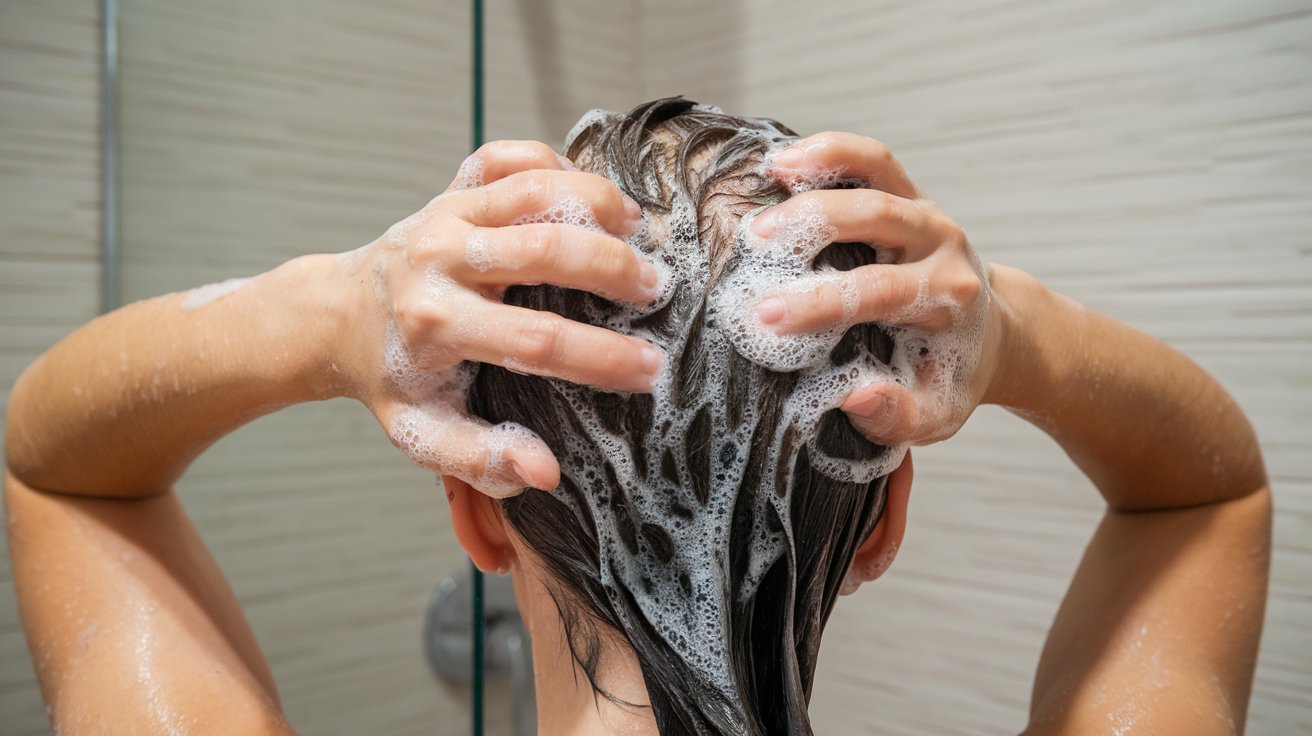
Opt for a gentle, sulfate-free shampoo that is formulated for your hair type. Look for ingredients like glycerin, panthenol, and ceramides which can help lock in moisture. Limit your shampooing to 2-3 times a week.
"You can use the Love Beauty & Planet Argan Oil and Lavender Shampoo which is highly recommended for this purpose."
Stay hydrated:
Drink plenty of water to keep your body and scalp hydrated from the inside out. Aim for at least 8-10 glasses of water a day. Limit consumption of caffeinated and alcoholic beverages as they dehydrate the body.
Avoid heat:
Minimise the use of heat styling tools like blow dryers, straighteners and curling irons, as they can increase the temperature on your scalp and dry it out. Always use a heat protectant serum or spray to help shield your scalp.
HOME REMEDIES
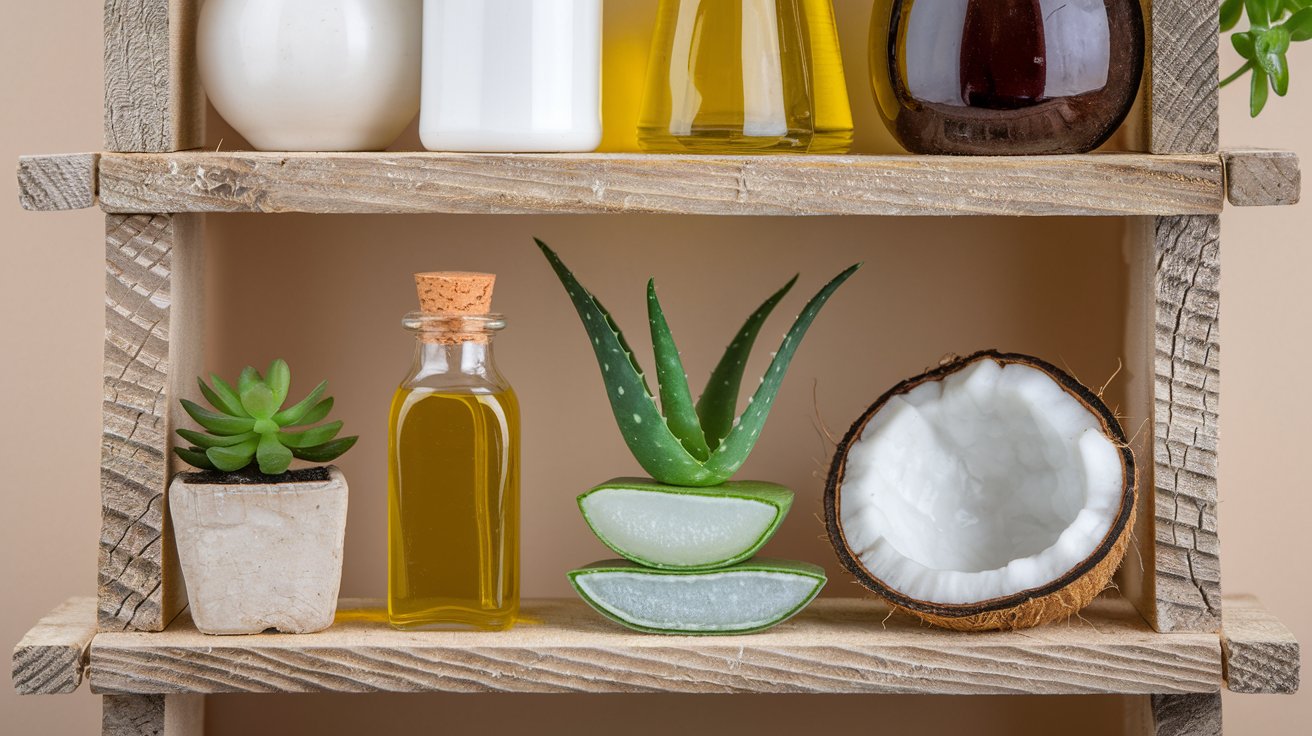
There are several home remedies that can help alleviate a dry scalp.
Aloe Vera gel:
Apply aloe vera gel to your scalp to soothe itching and reduce inflammation. Aloe vera contains nourishing vitamins and enzymes that can help moisturize and calm the scalp.
"The WishCare Pure & Natural Aloe Vera Gel can be used for this."
Tea tree oil:
Mix tea tree oil with a carrier like olive or coconut oil and apply it to your scalp. Tea tree oil has antiseptic properties that can help moisturize and protect the scalp.
"The Soulflower Tea Tree Hair Oil would be best suited for this purpose."
Homemade masks:
Create homemade hair masks using ingredients like egg and yogurt or banana and coconut oil. These masks can help restore moisture to your scalp.
ADDITIONAL REMEDIES
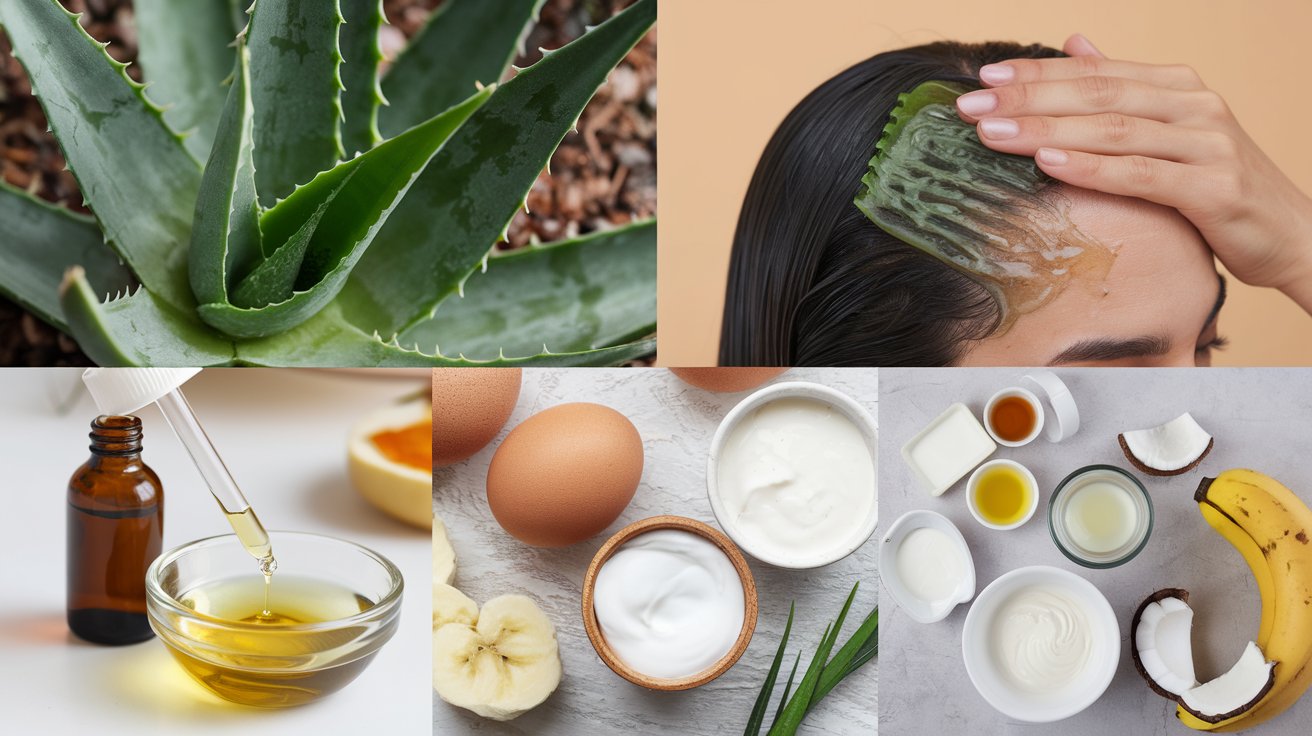
For more severe cases or additional relief, consider the following:
Apple cider vinegar:
Rinsing your scalp with apple cider vinegar can help balance the pH level and reduce flaking.
Humidifier:
Using a humidifier can help maintain moisture levels in dry environments, which can be particularly beneficial during the winter months.
Professional Scalp treatments:
Some hair stylists offer scalp treatments that use steam to deliver more moisture to the scalp. This can be a beneficial option if you have persistent dry skin.
You can also read more interesting blogs on haircare.
CONCLUSION
Always remember that maintaining a healthy scalp is crucial for hair health. By understanding the causes of dry scalp and implementing these prevention and treatment tips, you can significantly reduce the occurrence of scalp issues. Remember to stay hydrated and give your scalp and hair the adequate amount of care and nourishment that it requires. If your issue persists, consult a dermatologist for further guidance and treatment options.

